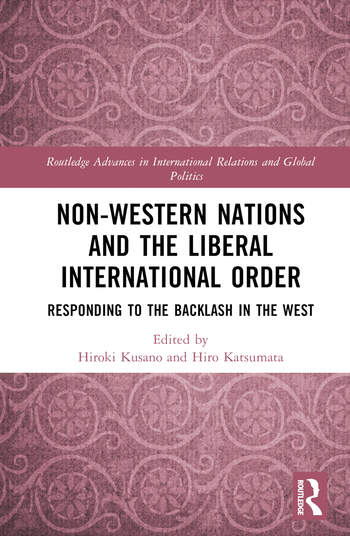
My chapter “From Trade Laggard to Trade Leader: Japan’s Role in Countering the Backlash Against Globalization” was recently published in Non-Western Nations and the Liberal International Order: Responding to the Backlash in the West edited by Hiro Katsumata and Hiroki Kusano. This edited volume is part of the Routledge Advances in International Relations and Global Politics series.
In recent years, the world has witnessed a significant backlash against globalization. However, Japan is a puzzling outlier: while it shares many characteristics with countries like the United States and the United Kingdom that are experiencing waves of populism and protectionism, it has not followed their trajectory. Instead, Japan has become a leader on trade issues, defending the liberal international economic order. My chapter argues that a combination of external and internal factors has led Japan to possess both the motivation and the flexibility to take action to stabilize the international status quo. Externally, the Japanese government perceives benefits from the liberal international economic order that it wishes to maintain. Internally, Japan’s economic and social policies have limited the number of domestic actors who have been negatively affected by globalization, and political reforms have strengthened the power of the prime minister vis-à-vis protectionist interests. My chapter also demonstrates that Japan has employed a mix of strategies to counter the backlash against globalization, including direct persuasion, signaling commitment, acting as a surrogate for the US, negotiating new trade agreements, and supporting existing agreements and institutions.
There are several ways to access my chapter:
